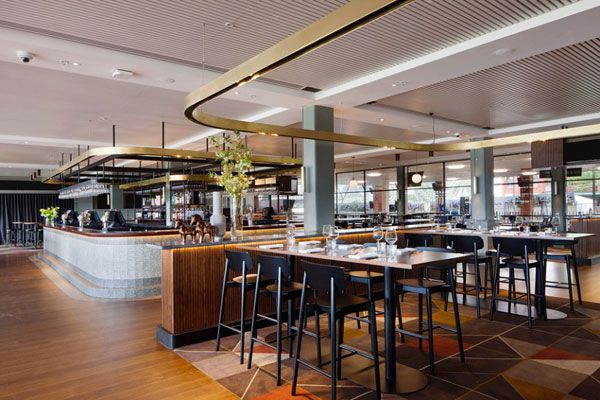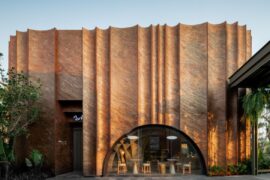Tania Spława-Neyman is a sessional lecturer at the School of Fashion & Textiles and a PhD candidate at the School of Architecture & Design, RMIT University

June 10th, 2014
Words by Tania Spława-Neyman
I consider myself lucky. I am affiliated with an educational institution that values design for its own sake, fostering innovative and not always commercial modes of designer-ly thinking. This could be seen as flying in the face of the needs of students, who want to be appropriately equipped for their future workplace, and the needs of industries that will become future employers. There is some legitimacy to the common criticism that students graduating from design programs are unfit for employment and simply too many in number. Certainly, as a fresh design degree graduate in the mid-nineties, understanding where I might fit within the design industry was difficult, an experience shared by my peers, many who are now employed in fields unrelated to their degree.
From my current perspective, as a design lecturer for the past ten years, I see this experience being re-enacted by contemporary graduating students. For those students who are employed in their field there is an obligatory on-the-job learning of skills and systems, often specific to the business or practice within which they are employed. This reveals the difficultly that educational institutions face when attempting to impart industry relevant skills through their curriculum, particularly when the possible career paths related to any design degree are unquantifiable and frankly, impossible to predict, especially within the present ever-changing, techno-centric world. This causes me to ponder – what is it that design education teaches?
My concurrent viewpoint as a higher degree student undertaking a PhD through practice-based research, allows me to see the role of the university in a quite different light. Design within educational institutions and specifically within academia has the privileged position of being able to work outside the constraints of the commercial world, and so being is obligated to explore possibilities outside, or even critique the current status quo. The most fundamental truth, that I believe is crucial for design education to teach, is that design makes futures – different futures, futures that are more desirable (hopefully) than what we presently experience. The responsibility that accompanies design as both a value producer, and as the creator of future scenarios must be embedded within the mindset and practice of designers to be.
I believe the abilities of every student completing study in design must span these three areas:
This is the direction in which I would like to see design education going, a pathway that is surely within the true spirit of design.
Tania Spława-Neyman is a sessional lecturer at the School of Fashion & Textiles and a PhD candidate at the School of Architecture & Design, RMIT University
RMIT
rmit.edu.au
A searchable and comprehensive guide for specifying leading products and their suppliers
Keep up to date with the latest and greatest from our industry BFF's!

BLANCOCULINA-S II Sensor promotes water efficiency and reduces waste, representing a leap forward in faucet technology.

In this candid interview, the culinary mastermind behind Singapore’s Nouri and Appetite talks about food as an act of human connection that transcends borders and accolades, the crucial role of technology in preserving its unifying power, and finding a kindred spirit in Gaggenau’s reverence for tradition and relentless pursuit of innovation.

Technē Architecture + Interior Design have transformed the once drab interior of the MRC (Melbourne Racing Club) Medallion bar at Caulfield Racecourse into an elegant and highly functioning spectator hub. Elana Castle explores.
The internet never sleeps! Here's the stuff you might have missed

In the final round-up for the year, there are some practices with a high number of internal changes as well as new studio launches and collaborations.

IDIN Architects creates another spectacular project following its win in The Social Space category at the 2024 INDE.Awards.